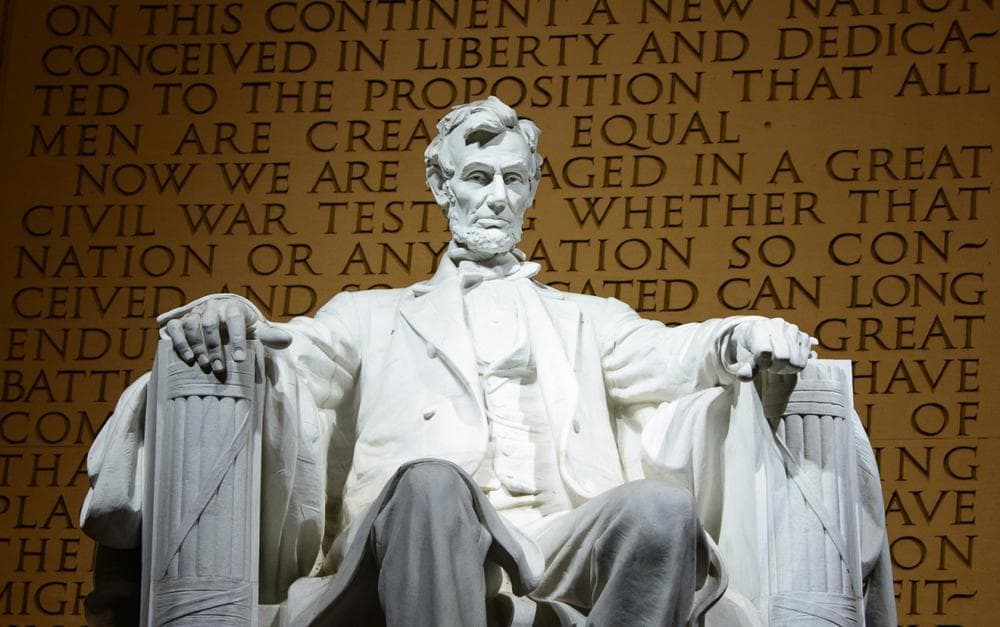Advertisement
Gettysburg Address Still Resonates, 150 Years Later

"Four score and seven years ago our fathers brought forth, upon this continent, a new nation, conceived in liberty, and dedicated to the proposition that 'all men are created equal.'"
On this date in 1863, President Abraham Lincoln delivered these words in the Gettysburg Address, a two-minute-long speech that became one of the most famous in American history.
Lincoln spoke at the dedication of the National Cemetery in Gettysburg, Pennsylvania, the site of a bloody Civil War battle the summer before.
That speech still resonates with people 150 years later — but why? Boston University history professor Nina Silber joins Here & Now's Robin Young to discuss the answer.
Interview Highlights
On the context of the dedication ceremony and address
"The Battle of Gettysburg had happened in July of 1863 — the deadliest battle ever to happen in North America — about 10,000 dead, 21,000 wounded, I think another 20,000 missing. So the casualties are enormous. And there was a movement to bury the dead, to construct, as you mentioned, this national cemetery. And I should say, strictly to honor the Union dead as a national cemetery. It wasn't meant to honor the Confederate dead."
On the perception the address was uniting both sides
"Starting in the 1880s, when people thought about the Gettysburg Address, they put it in the context of reconciliation. They saw it as a document for all Americans. In the 1880s, people were thinking, you know, this is a time now to put our differences behind us and reconsider the two sections. But I would say in the moment, in 1863, when the nation was completely divided, Lincoln was there to honor the Union dead, those who were supporting the principles and the values of the United States, which is why he makes reference in the very beginning of the Gettysburg Address back to the Declaration of Independence."
On the references to slavery, without using the word
"Democratic newspapers at the time said, 'Oh Lincoln, he's being so partisan again. Oh, there's Lincoln just kind of ranting on.' And some made reference to the idea that, 'Oh, here was Lincoln just making a speech about the negro.' So even though, you're right, there's no mention of slavery in there, there's no mention of African Americans, I think that was on people's minds — that this, in some way, was a reflection on the Union now that there was emancipation."
Guest
- Nina Silber, professor of history at Boston University.
This segment aired on November 19, 2013.